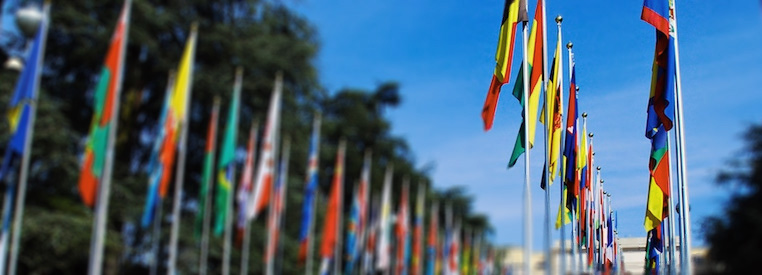Uganda| The Anti-Homosexuality Bill

Protests were held outside the Ugandan Embassy in London, New York and elsewhere.
The Anti-Homosexuality Bill before the Ugandan parliament is attracting much national and international attention.
From CNN:
As a gay man in Uganda, Frank Mugisha is used to the taunts, the slurs and the daily harassment of neighbors and friends.
But if a new bill proposed in the east African country becomes law, Mugisha could be put away for life, or worse, put to death for having sex with another man.
“Right now, you can’t go to places that are crowded, because the mob can attack us or even burn us. We can’t walk alone. We are ostracized by relatives. But if this bill passes, it will become impossible for me to live here at all. And that part hurts the most,” Mugisha said. Read more
U.S.| New method of execution used in Ohio
A new method of a one-drug intravenous lethal injection was employed for the first time in the United States in the execution of a convicted killer in Ohio. Read more
U.S.| 9/11 and Legal Obstacles: How Do You Defend a Nortorious Terrorist Figure?
Following the recent announcement by U.S. Attorney General Eric H. Holder Jr. to try Khalid Shaikh Mohammed in a civilian Manhattan courthouse, Eric Lichtblau and Benjamin Weiser of the New York Times poses the question, “How do you defend one of the most notorious terrorist figures in history?” From the question of a fair trial to that of capital punishment, to challenges that will ineluctably be made to interrogation methods used on the suspect during his more than six years of detention, the 9/11 trial evinces a host of unparalleled legal obstacles. Read more
U.S.| Key 9/11 Suspects To Be Tried in NY Federal Court
The Obama Administration has decided to move the trials of the five Guantánamo Bay detainees suspected of plotting the 9/11 attacks from the Guantánamo military commissions to federal courts to face justice. Read more
UN human rights chief urges end to death penalty in Iran

UN Photo / Jean-Marc Ferre
Navi Pillay, the UN High Commissioner for Human Rights, has spoken out against the use of the death penalty for juvenile offenders in Iran. Speaking on 13 October, she also voiced serious concern over the death sentences recently handed down to three people for their involvement in the post-election protests that gripped the media’s attention around the world.
According to the news release issued by the Office of the High Commissioner for Human Rights, Behnoud Shojaie, 17, who was executed on Sunday, had been convicted of the murder of another boy in a street fight. Both Pillay and UN special rapporteurs had broached the issue with Iranian authorities to remind them of their legal obligations not to execute juveniles, under the International Covenant on Civil and Political Rights and the Convention on the Rights of the Child, to both of which Iran is a party.
“This latest execution shows there are no guarantees of clemency for juveniles until Iran changes its law and practice to end execution of juvenile offenders once and for all,” the High Commissioner said. “It is the State’s responsibility to stop these executions, not a family’s prerogative.”
With regard to the death sentences issued to three post-election protesters, she noted that, “Under international law, the death penalty can only be applied when very strict conditions are met, for example only in respect of the most serious crimes and only after scrupulously fair trials.”
UN human rights mechanisms are of the view that imposing the death penalty for crimes that do not result in loss of life belies the principles of the International Covenant on Civil and Political Rights.
More here.
